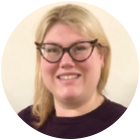Expert on Demand in Melanoma
The Expert on Demand programme at MSD provides an exciting opportunity for you and your MDT to connect with Key opinion leaders in Melanoma at a time that works for you.

- Module 1: A surgeon’s perspective: The adjuvant Stage IIB-C melanoma patient pathway
- Module 2: Individualised care and the patient conversation
A surgeon’s perspective: The adjuvant Stage IIB-C melanoma patient pathway
This module is an opportunity to learn from a respected surgeon about their experiences in adjuvant melanoma.
Through the lens of the KEYNOTE-7162 study, they will share their perspective on the adjuvant melanoma MDT and what contributes towards effective communication and a collaborative patient pathway.
Learning Objectives
- Discuss the significance of a collaborative patient pathway and a well-defined referral system that accommodates the latest advances in adjuvant therapy for melanoma.
- Understand what surgeons require from other specialties to facilitate MDT working and aid optimal communication with patients.
- Reflect on why communication in the adjuvant melanoma patient pathway may not always go as planned and discuss ways to potentially mitigate challenges.
- Understand the role played by each member of the MDT in the context of collaboration and communication, and what ‘good’ can look like.
Speakers

Mr Jonathan Pollock
Consultant Plastic Surgeon, Nottingham University Hospitals NHS Trust
Biography
Jonathan Pollock is a Consultant Plastic Surgeon based at Nottingham University Hospitals NHS Trust, where he specialises in skin cancer surgery and facial reconstruction. He completed his training in Plastic, Reconstructive and Cosmetic Surgery in the East Midlands and was awarded the Ian McGregor Gold Medal for his performance in the FRCS exam. He went on to be appointed to two national fellowships in Skin Cancer at Norfolk and Norwich University Hospital, and Head & Neck Surgery at the Queen Elizabeth Hospital, Birmingham. He was appointed a Consultant in 2016.
Mr Pollock has been the Chair of the East Midlands Skin Cancer Network from 2019-2022, and is the lead surgeon for the skin cancer service in Nottingham. He also sits on the National Plastic Surgery training committee at the Royal College of Surgeons and has worked as the Quality Assurance lead, and Deputy National Selection lead, as well as being a committee member for the national Mohs fellowship. He is an invited lecturer on skin cancer and reconstruction techniques both nationally and internationally, and has written book chapters as well as over 40 presentations and publications.

Mr Matthew Stodell
Consultant Plastic and Reconstructive Surgeon, Barts Health NHS Trust
Biography
Mr Stodell is a Consultant Plastic and Reconstructive Surgeon. His sub-specialty interest lies in the surgical management of skin cancer and melanoma.
He was awarded the Poche Surgical Fellowship at the Melanoma Institute Australia in 2016 and completed his post-graduate plastic surgery training in London in 2018.
He holds a substantive position at The Royal London Hospital, Barts Health NHS Trust, where he is Clinical Lead for the Specialist Skin Cancer Multi-Disciplinary Team and Clinical Governance lead for Plastic Surgery.
Individualised care and the patient conversation
This module provides access to extensive experience of the patient–physician conversation and lessons learned over years of clinical practice from several renowned physicians.
Through discussion and illustrative case studies, they will share their approach to discussing adjuvant melanoma management with patients and give examples of best practice communication.
Learning Objectives
- To explore the typical conversations patients are having with their healthcare professionals at various stages of the melanoma patient pathway.
- Discuss ways in which these conversations might be optimised to improve the patient experience.
- Examine the roles of key stakeholders central to the patient conversation within the adjuvant melanoma patient pathway.
Speakers

Dr Anna Olsson-Brown
Consultant in Medical Oncology, Royal Sussex Hospital
Biography
Anna Olsson-Brown is a Consultant in Medical Oncology. She specialises in the systemic treatment of skin cancers; immunotherapeutic toxicities, early phase/translational clinical trials and acute oncology. She is the Clinical Director for Clinical Cancer Services at Sussex Cancer Centre and an Honorary Senior Lecturer at the University of Liverpool. She has a background in clinical pharmacology and an interest in acute oncology and supportive care for cancer patients particularly with regards to toxicity of cancer therapies. She was an MRC research fellow completing her PhD investigating the mechanisms of immunotherapy toxicity and has subsequently published extensively in the area. She established and led a pan-tumour, pan-regional immunotherapy toxicity service supporting inpatients and outpatients with immunotherapy toxicities prior to her move to Sussex and now leads the service there. She is the current immunotherapy toxicity work stream lead for the NIHR Oncology Translational Research Committee (O-TRC) and a board member of UKASC. She is a founding member and current CEO of the National Immunotherapy Clinical Network (IOCN) and sits on the UK SACT Board within this role. She is a current Oncology representative of the Symposium Committee at the Royal College of Physicians of Edinburgh, representative on the Association of Cancer Physicians and RCPE new consultant committees and senior advisor to the National Oncology Collaboration for Trainee Research (NOTCH).

Dr Ricky Frazer
Medical Oncology Consultant, Velindre Cancer Centre
Biography
Ricky Frazer is a medical oncology consultant working at Velindre Cancer Centre (VCC) in Cardiff. He specialises in renal cancer, skin cancer and acute oncology and is clinical lead for the acute oncology assessment unit at VCC and the immunotherapy toxicity management service. He is one of the founding members of the UK Renal Oncology Collaborative (UK ROC). He has recently completed and was awarded a distinction in the postgraduate certificate in acute medicine at the University of South Wales. He was a Welsh Clinical Leadership Training Fellow with the Wales Deanery and is a Founding Associate Fellow of the Faculty of Medical Leadership and Management. He has a strong educational interest and is currently a Royal College of Physicians (RCP) College Tutor and Faculty Lead. He is also an Honorary Lecturer at Cardiff University. He has completed a Master’s in medical education and was awarded the National Munro Medal by the RCP for excellence and leadership in education. He is Vice President of the National Immuno-Oncology Clinical Network (IOCN) and Co-leads the monthly National Immuno-Oncology Education Forum. He has been heavily involved in the inception and development of the national Practical Management of your Immuno-Oncology Patient (PMI-OP) educational series exploring immunotherapy identification and management with specialist colleagues. In 2023 he was awarded the individual leader of the year foe Velindre NHS Trust and the South East Wales Immunotherapy Toxicity Team won the award for education, research and innovation and improving patient experience. The immunotherapy team were also awarded the coveted Macmillan UK National Innovation Excellence Award in Glasgow in November 2023.
KEYTRUDA® (pembrolizumab) as monotherapy is indicated for the adjuvant treatment of adults and adolescents aged 12 years and older with Stage IIB, IIC or III melanoma and who have undergone complete resection.1
Please refer to the SmPC for further information before making any prescribing decisions.
Reference
- KEYTRUDA Summary of Product Characteristics
- Luke JJ, et al. Lancet 2022;399:1718–1729
Supporting documentation
Prescribing Information [External link]
By clicking the link above you will leave the MSD Connect website and be taken to the emc PI portal website.
To register your interest in Expert on Demand please complete the form below:

